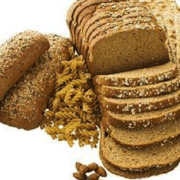Use Of "มัน" In This Sentence
-
Recently Browsing 0 members
- No registered users viewing this page.
-
Topics
-
-
Popular Contributors
-
-
Latest posts...
-
27
-
60
Report Pattaya’s Smoking Crackdown: Expats Voice Concerns
Try living somewhere people don't do it...entitlement comes to mind 👍 -
73
Crime Disabled British Tourist Robbed by Trio in Pattaya Hotel Room
Some of these ladyboys are so desperate they have to resort to thieving, robbing people, mugging this old guy was the lowest they could get, he was a bit stupid to take them back but thats no excuse to rob him -
4
UK Secret Afghan Evacuation Exposed After 23-Month Gag Order Lifted
Not under the current government so you’ll not hear a lot of complaints. -
27
best pain killer over the counter
A couple weeks ago I had a complicated tooth extraction, the dentist gave me tramadol (the 50mg green & yellow caps) she said that was the strongest available, the next strongest would be morphine. I took a couple for a couple days then stopped as I know from experience that tramadol can get you addicted and it is extremely difficult to get yourself unhooked. So anyone using it should be very cautious and only take it when really neccessary. -
140
Kissing on the mouth
Trashy stuff. Ive seen more of Thailand than anyone except Khunla. You guys don't get out much.
-
-
Popular in The Pub




.thumb.jpeg.d2d19a66404642fd9ff62d6262fd153e.jpeg)








Recommended Posts
Create an account or sign in to comment
You need to be a member in order to leave a comment
Create an account
Sign up for a new account in our community. It's easy!
Register a new accountSign in
Already have an account? Sign in here.
Sign In Now